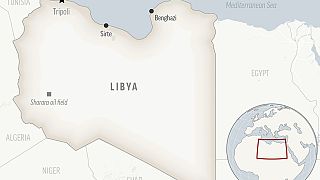Ethiopia
Ethiopia's national currency dropped 30 per cent against the dollar after its central Bank floated its birr currency on Monday.
This move is aimed at securing International Monetary Fund (IMF) support and advanced debt restructuring support.
Ethiopia has been grappling with high inflation and foreign currency shortages, and it defaulted on its government debt last year.
Negotiations with the IMF resumed after a peace deal in Tigray in 2022. The central bank will now allow banks to trade foreign currencies freely with limited interventions.
Prime Minister Abiy Ahmed announced the reforms, and the country expects $10.7 billion in external financing from the IMF, World Bank, and other creditors.
Importers welcomed the move, which eliminates reliance on the black market for dollars.
The U.S. supported the shift to a market-determined exchange rate, calling it necessary for addressing economic issues.
Ethiopia requested debt restructuring in 2021, but progress was delayed by the Tigray conflict.












01:36
Migration and refugee policies key to economic growth, Say UN and IMF experts
Go to video
Foreigners face gold trading ban in Ghana beginning May 1
Go to video
At least 14 million children worldwide risk malnutrition, warns UNICEF
Go to video
Libya devalues currency for first time in four years amid fiscal strain
00:47
IMF Approves $1.2 Billion Disbursement for Egypt Amid Economic Reforms
Go to video
WTO and IMF warn of global trade disruptions a new U.S. tariffs